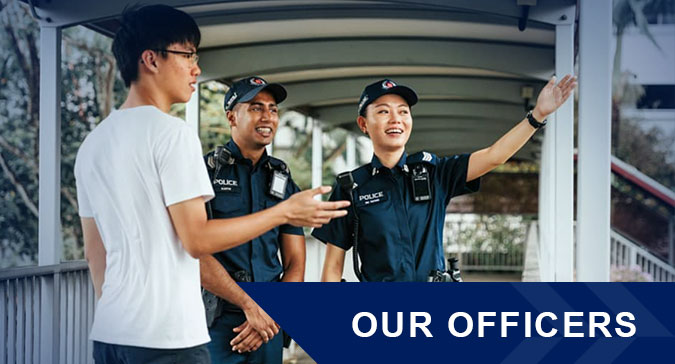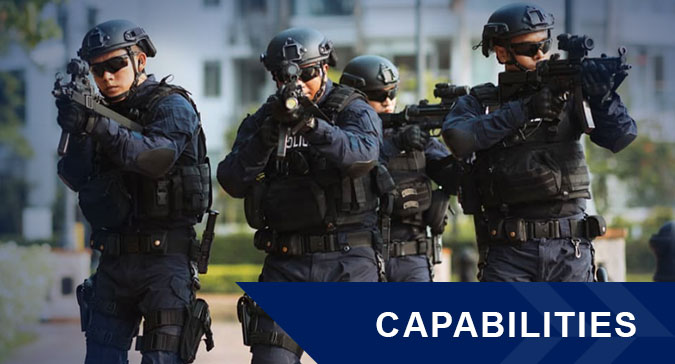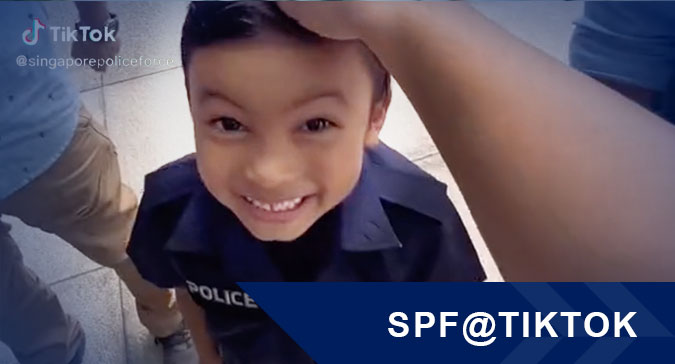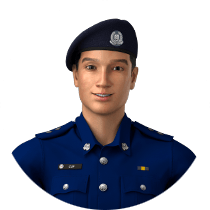Hear from three SPF officers who ventured into the heart of UN peacekeeping missions and disaster relief operations, bringing professionalism and dedication in the service of peace.
By: Domnic Dass and Leow Su Ling
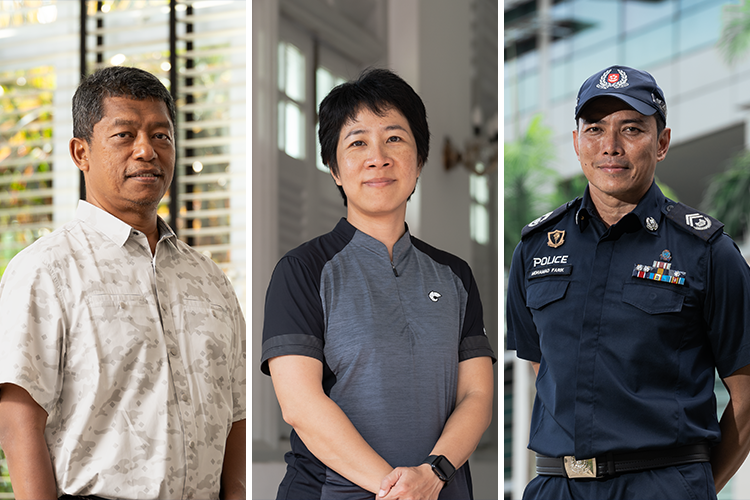
The Singapore Police Force (SPF) has been contributing to international peacekeeping efforts since 1989. The SPF United Nations Peacekeeping Force (UNPKF) was established within the Special Operations Command (SOC) in 1998 with the aim of sending officers to perform policing duties in overseas peacekeeping missions.
The UNPKF has participated in 15 overseas peacekeeping missions (including non-UN missions) in Cambodia, Timor-Leste, Iraq, Jordan, Aceh and Nepal, and contributed a total of 252 officers in these missions. Since 2014, the UNPKF has also been activated for disaster relief operations under Operation Vanguard such as the 2014 Air Asia QZ8501 crash in Surabaya, Indonesia; the 2015 Nepal earthquake; and the 2018 Laos dam collapse.
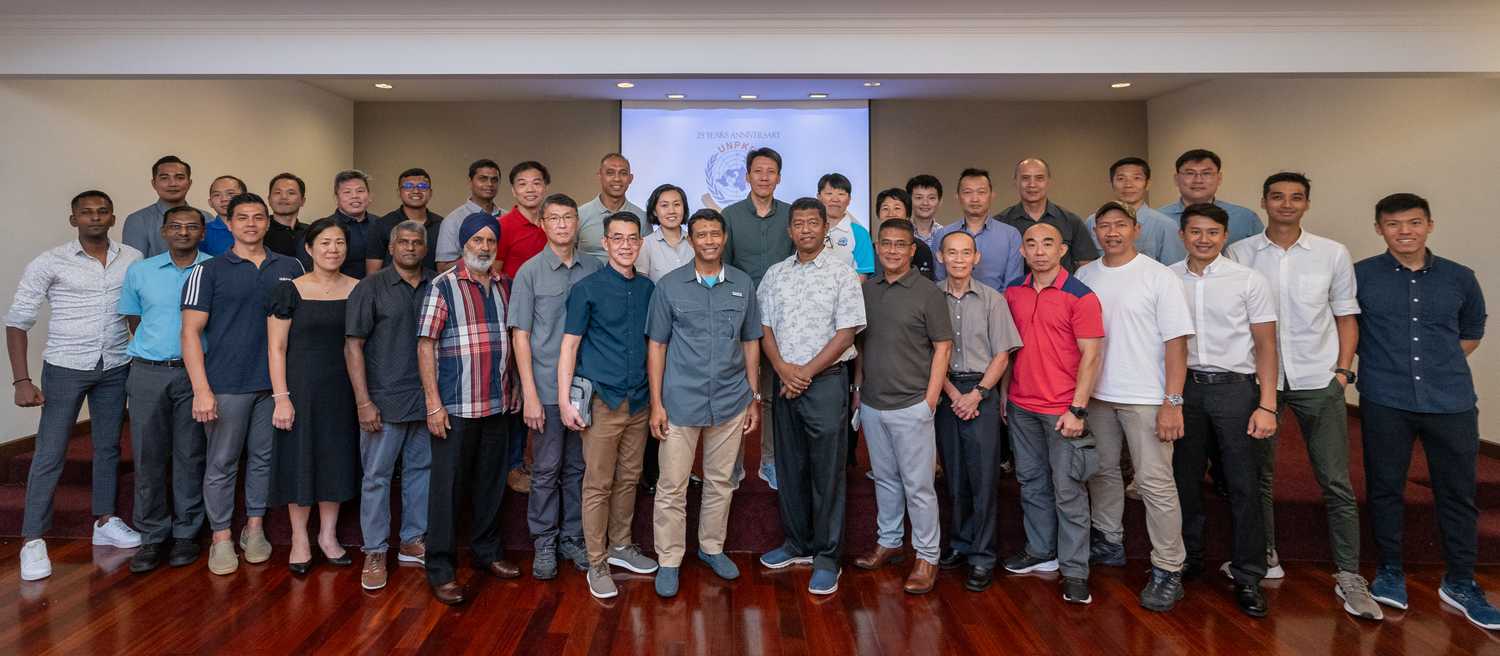
This year, the SPF UNPKF celebrates its 25th anniversary. Superintendent of Police (Supt) (Ret) Mohd Amir Bin Rahaman, Supt Toh Pei Lian and Station Inspector (SI) Mohamad Farik Bin Aziz shared how they embraced their role as peacekeepers.
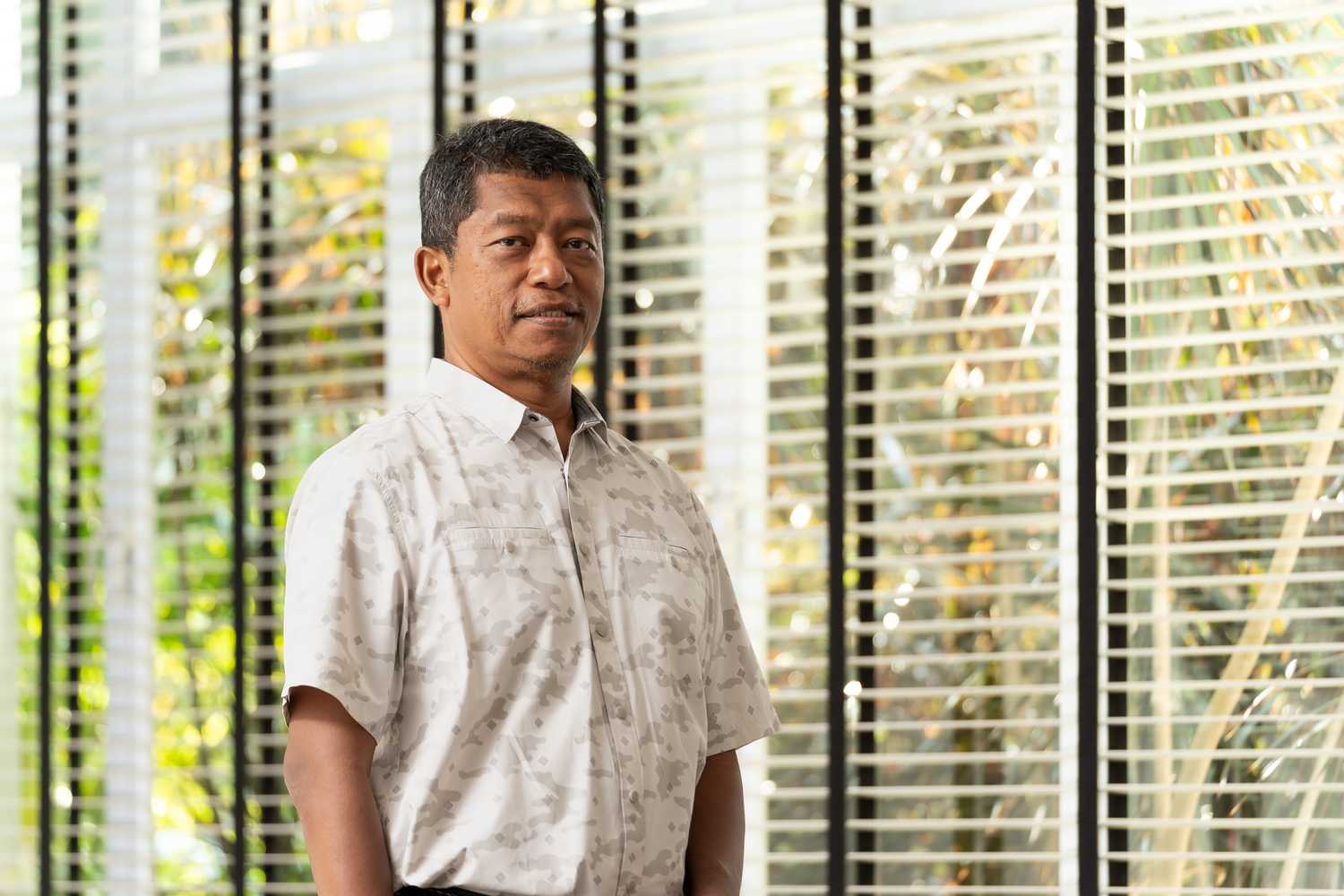
Supt (Ret) Mohd Amir Bin Rahaman
What made you join the SPF UNPKF?
I’d already served on two UN missions when they were recruiting police officers through open application: Namibia (1989) and Cambodia (1992), before the formation of SPF UNPKF. My motivation to serve stemmed from a desire to represent Singapore internationally in peacekeeping efforts and demonstrate our professionalism and dedication to others.
I also had a keen interest in understanding different cultures and fostering mutual respect and appreciation. Moreover, the opportunity to help others was a driving force. Therefore, I eagerly applied to join the SPF UNPKF when it was established, even though I’d missed the initial recruitment.
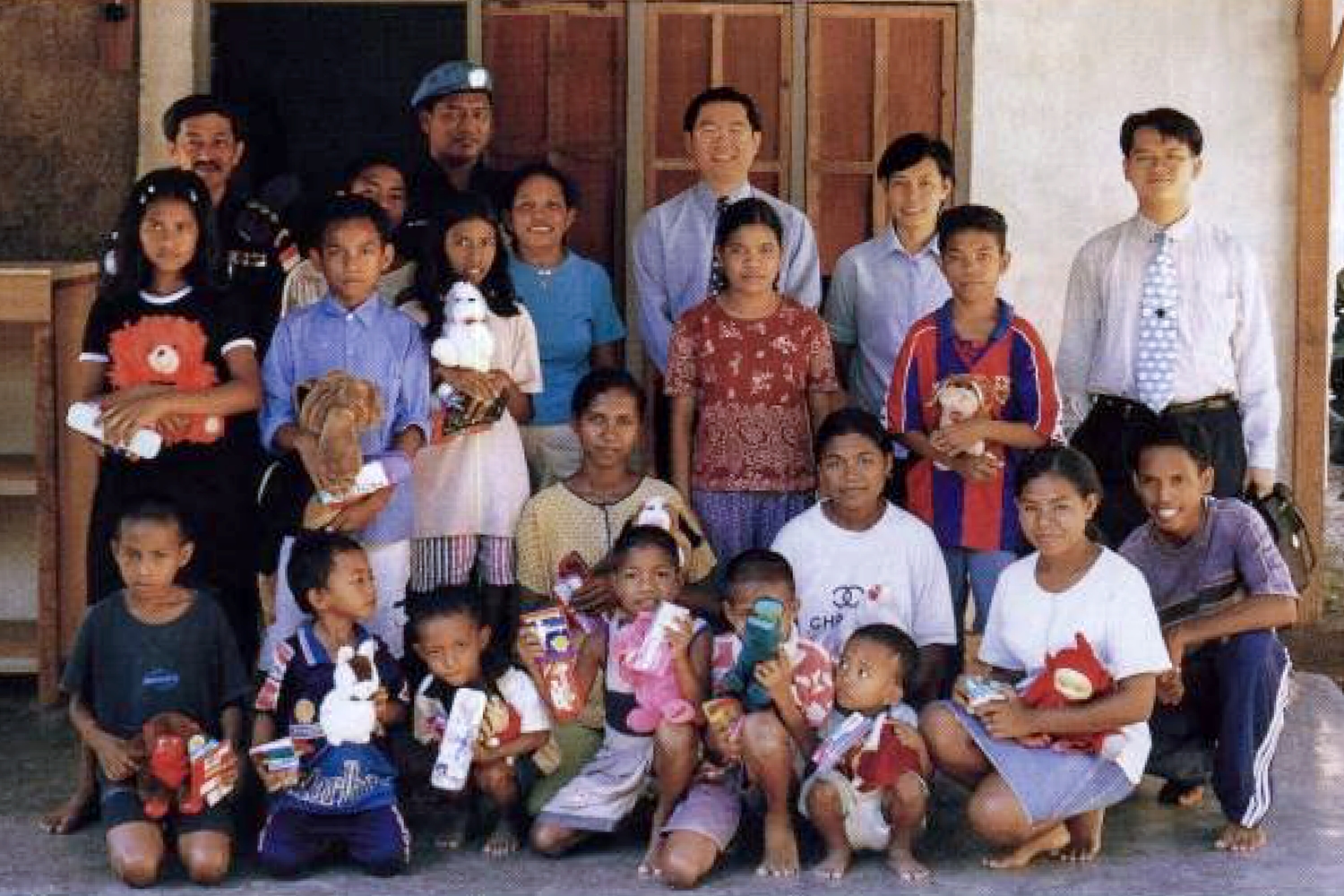
Tell us more about the peacekeeping missions and roles you have had.
From 1989 to 2015, I participated in seven overseas missions, taking on various roles and responsibilities. These included serving as a Patrol Officer in the UN Transition Assistance Group in Namibia in 1989; as a Special Assistant in the UN Transitional Authority in Cambodia in 1992; and serving as an Intel Officer and later a Special Assistant in the UN Transitional Administration in East Timor and the UN Integrated Mission in Timor-Leste in 2002.
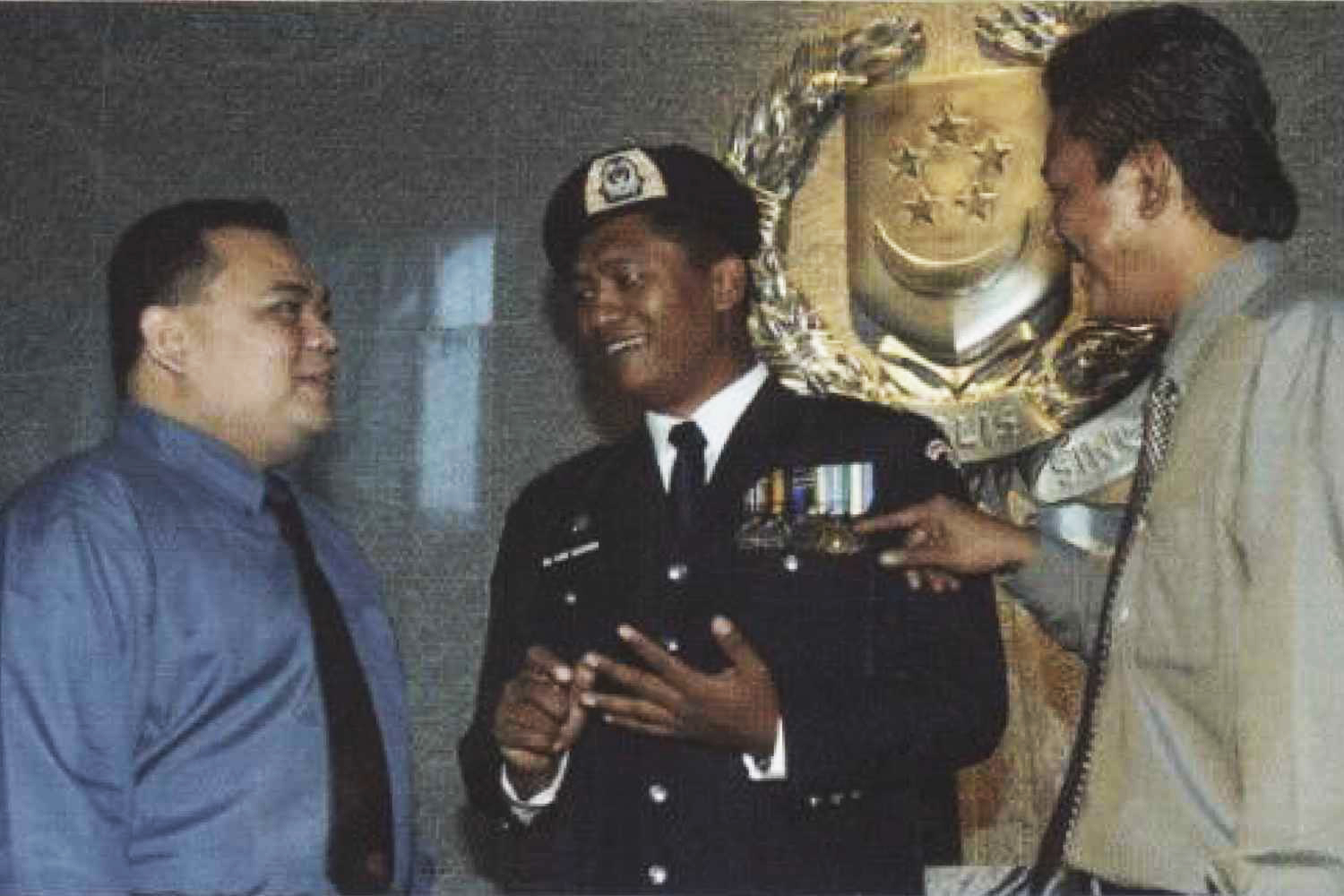
I also provided humanitarian assistance in Iraq, trained Iraqi Police officers and served as our mission’s Head of Operations in 2002.
During my time in Timor-Leste from 2007 to 2009, I held the roles of Chief of Operations in Dili District and Chief of the Induction Training Unit. Finally, in 2016, I led a humanitarian assistance mission after the 2015 Nepal earthquake as a member of the Coordinating and Liaison team.
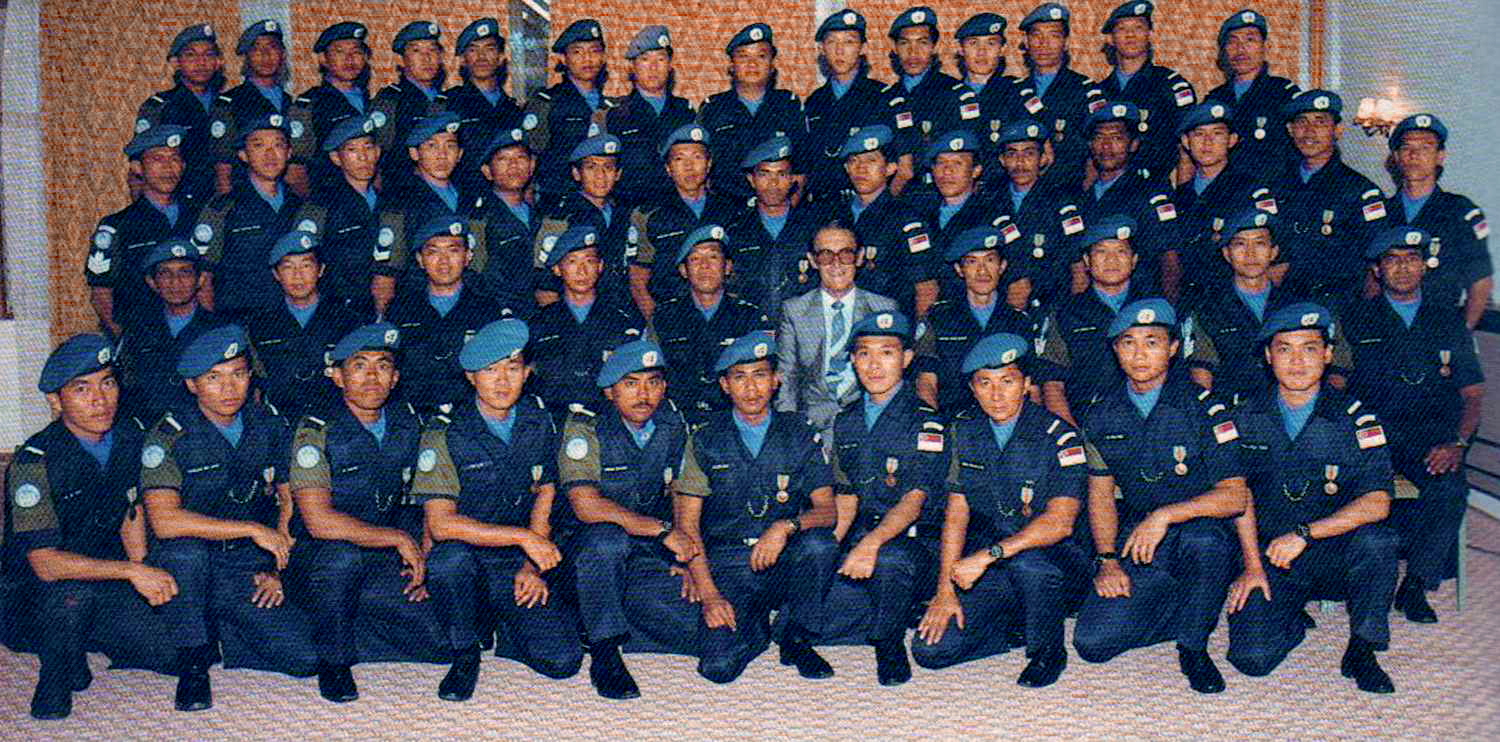
Which is your most memorable mission amongst the seven peacekeeping missions you've joined?
During my first mission in Namibia in 1989, I faced significant challenges in promoting community policing and rebuilding trust in the police force as many people had lost faith with the authorities during the apartheid regime. I vividly remember a home visit where one occupant initially refused to join us, claiming that the police couldn't be trusted. Although it took time, I eventually convinced her to engage with us and participate in the conversation.
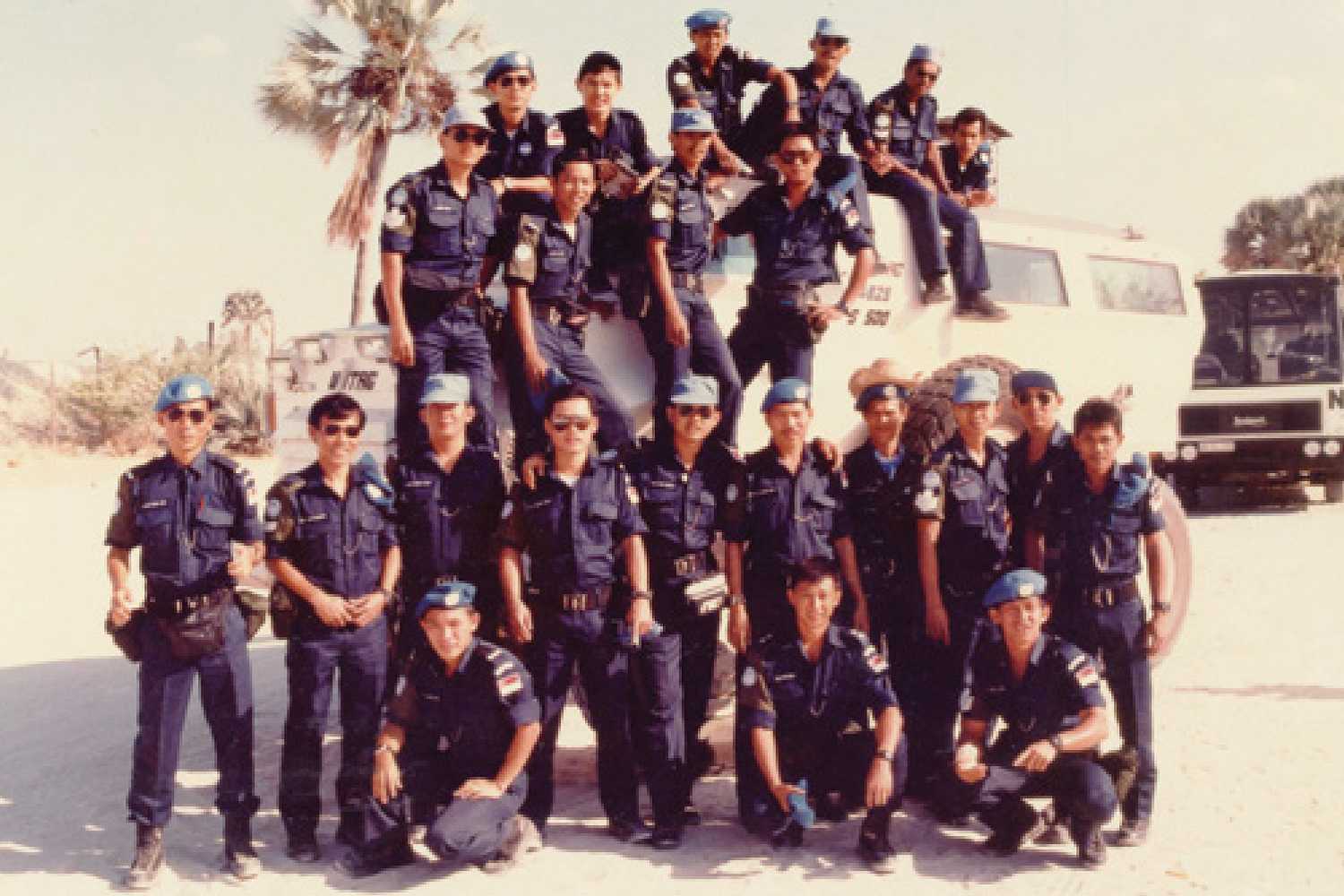
Another time, I got lost in the Namibian bush without GPS after conducting a check at a police station. With fuel running low, I relied on my map-reading skills to find my way back to base.
You’ve had vast experience serving on many missions. What do you think are the most important qualities that UNPKF officer must have?
A UNPKF officer must possess a people-oriented mindset, prioritising listening, empathy and providing assistance in any way possible. Respecting individuals from diverse backgrounds is crucial, especially when working alongside police officers from other nations in a post-conflict environment. Fostering good teamwork is equally essential as collaboration with various parties is necessary during missions.
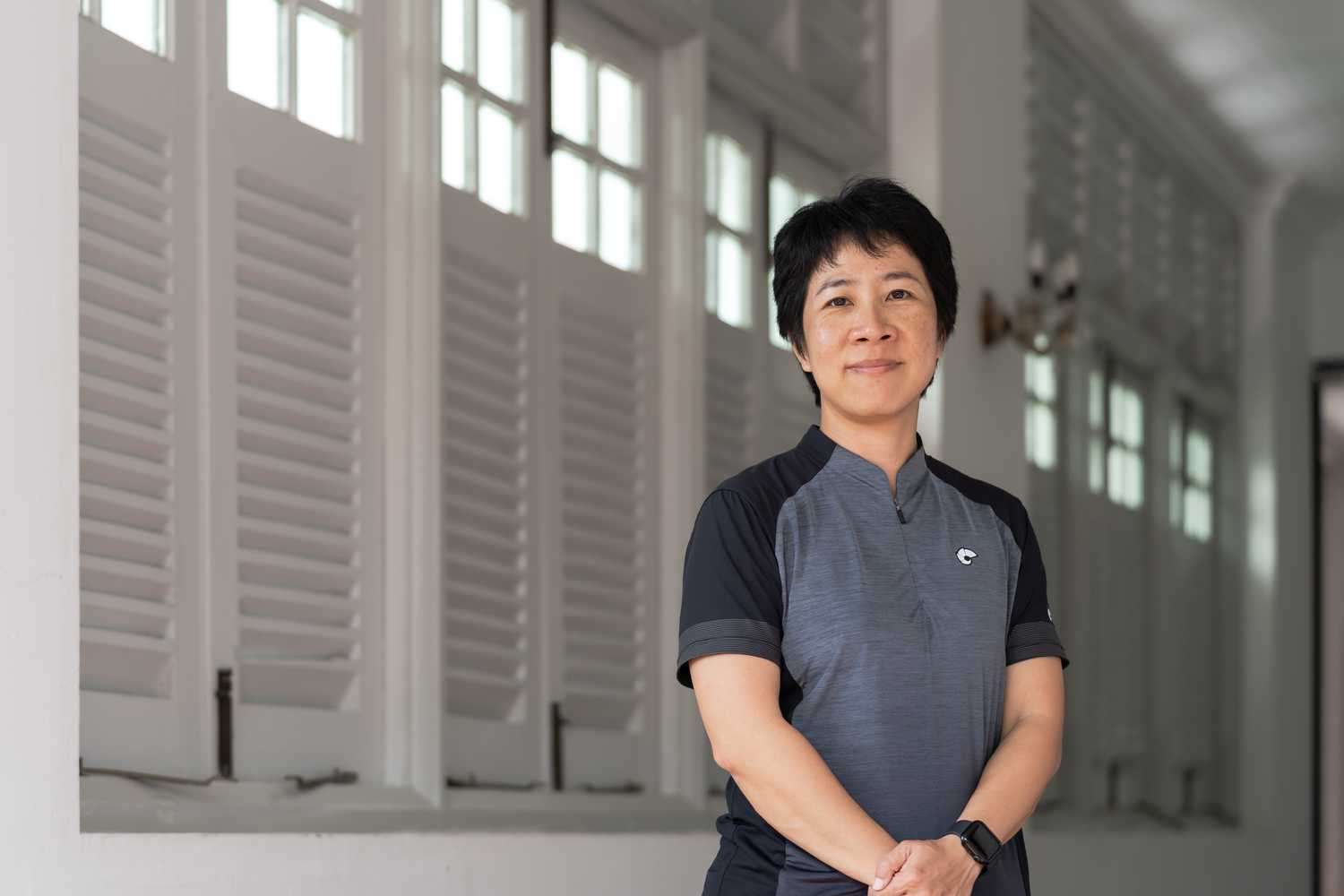
Supt Toh Pei Lian, Commanding Officer, Frontline Policing Training School, Training Command (TRACOM)
Why did you join the UNPKF?
Growing up in the 1990s, I knew about the Yugoslav Wars and the Rwandan Genocide, and how the UN and international intervention had played an important role in restoring peace. When the opportunity came to be part of the UNPKF, I wanted to contribute to that peacekeeping ideal.

Where have you served under the UNPKF?
I served on a one-year mission in Timor-Leste from 2010 to 2011. I also had stints in the Professional Standards and Discipline Office of the Reform, Restructure and Redevelopment Department in the capital, Dili, as well as an investigator in Liquicia District, where I partnered the local police and advised them on investigation matters.
Share a memorable incident from your UNPKF days.
Safety and security were constant concerns during my overseas UNPKF missions. I had two close encounters with unruly youths who attacked the UN vehicle that I was driving; they threw rocks and attempted to block us. Although several windows of my vehicle were smashed, nobody was hurt, and we managed to return to base safely. It made me realise how close we were to a potentially dangerous situation, and the support from my fellow SPF contingent members and Contingent Commander helped calm my nerves afterwards.
I also had a close call with rockfall while driving on mountain roads. These experiences taught me to be vigilant for any signs of potential trouble.
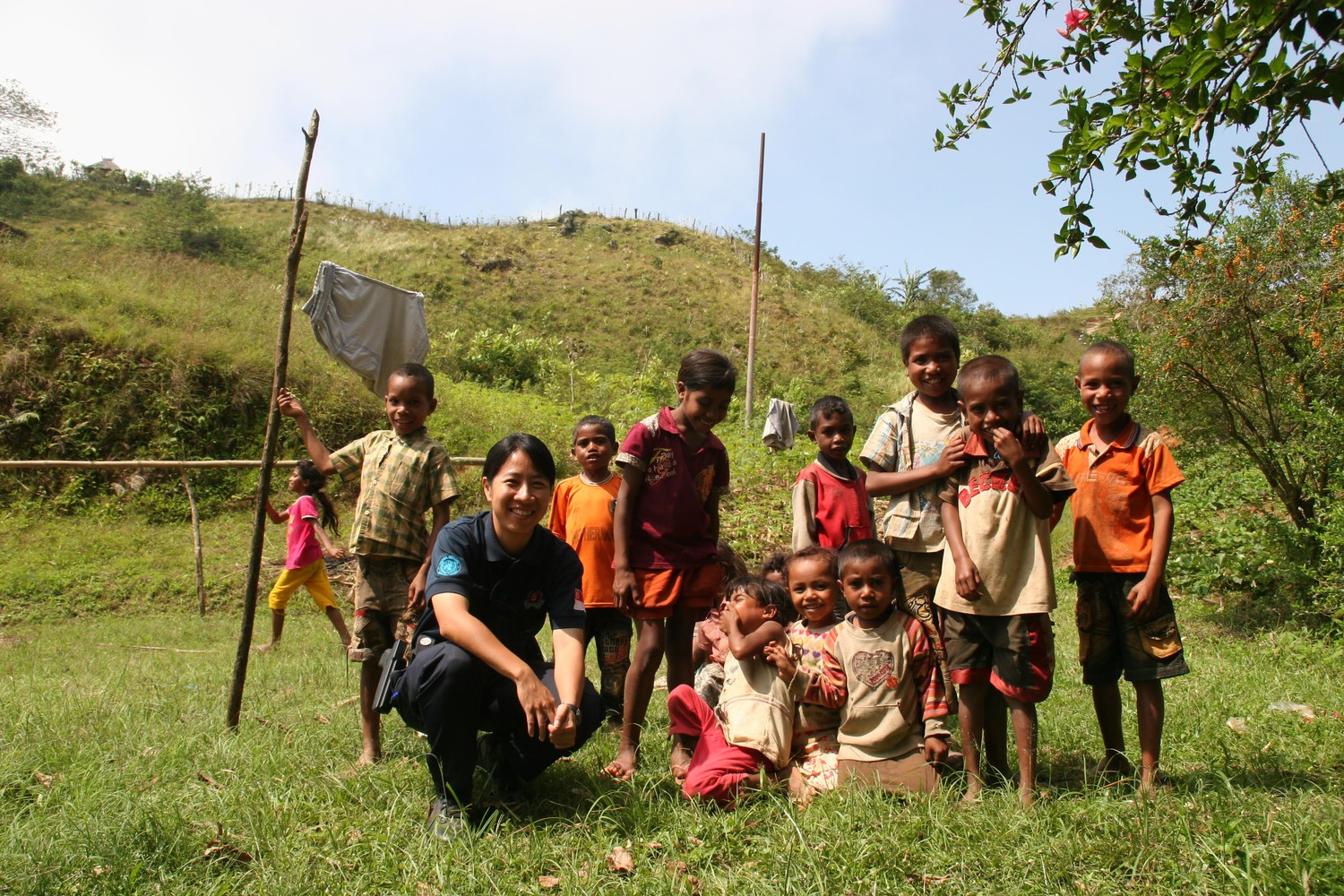
What are the essential qualities and skills required of officers serving in the UNPKF?
It’s important that you have the right attitude to serve and contribute to the community, in whatever capacity or post you’re assigned, and work within the context of local cultures. I can’t overstate the importance of being mentally prepared to operate for prolonged periods in harsh environments with only basic amenities, and being able to withstand the stress of living under tense conditions where violent encounters are common.
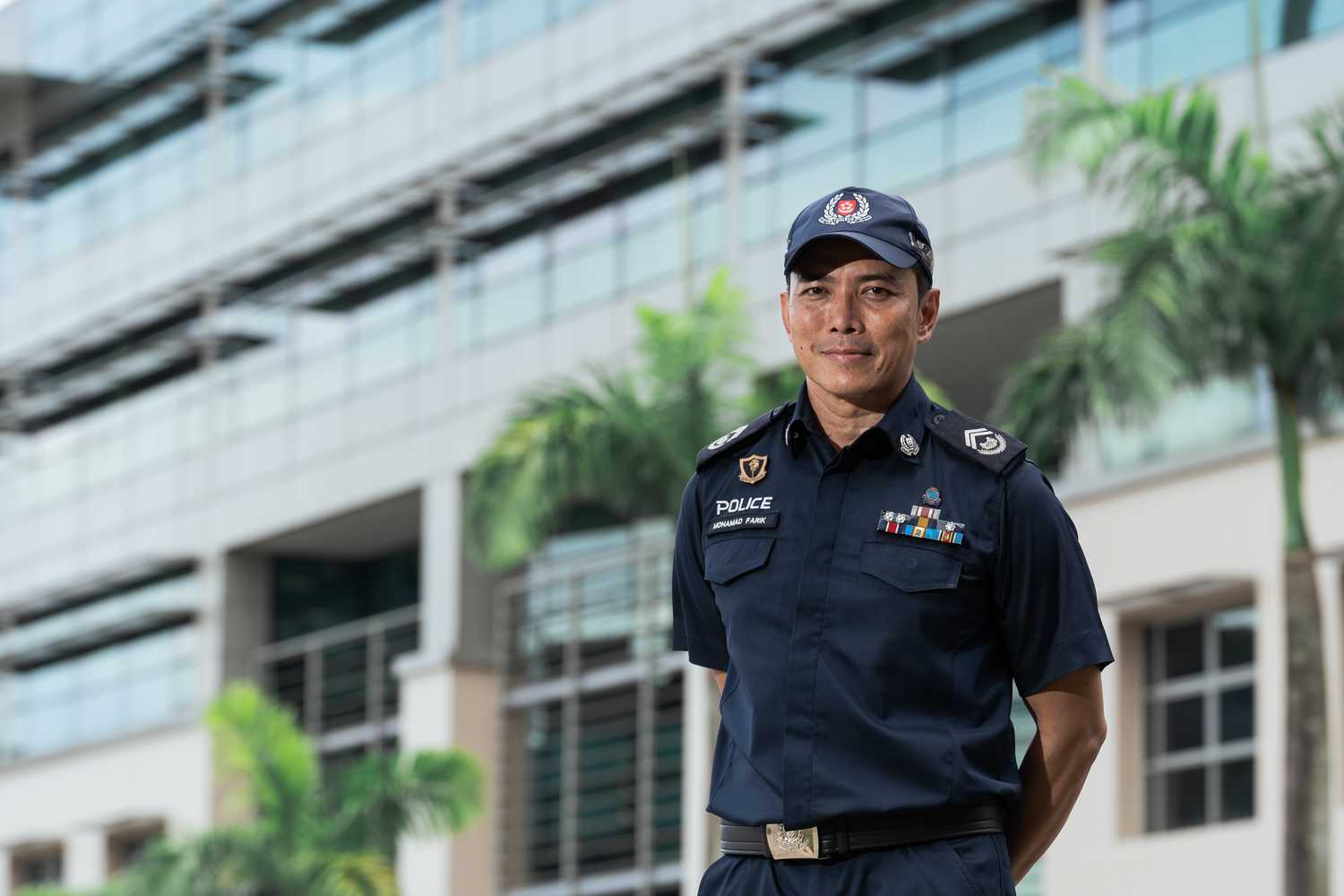
SI Mohamad Farik Bin Aziz, Trainer, Baseline Firearm Training, Frontline Policing Training School, TRACOM
Tell us about your policing journey.
I first joined the SPF in July 1996 as a patrol officer in the Police Coast Guard (PCG), where I became an Assistant Crew Commander. After two years, I applied for the Special Task Squadron (STS) – an elite unit of the PCG – because I wanted to challenge myself mentally and physically. After a gruelling selection and training process, I joined the STS. During my 10-year journey in the STS, I applied to join the UNPKF, and have continued to stay active, even when I was a trainer in the PCG Training School for 11 years, and now as a firearms trainer in TRACOM.
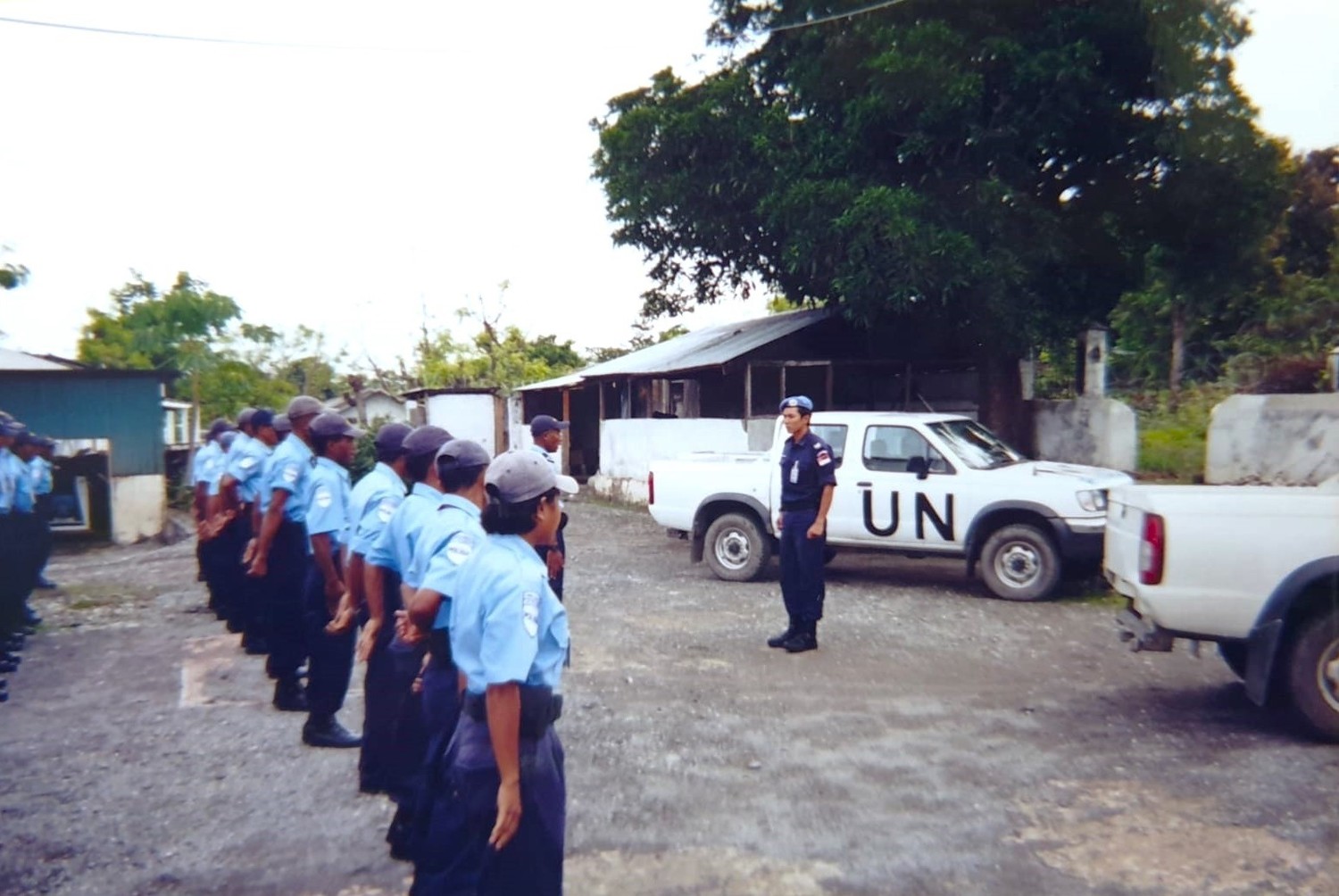
Where have you served, and which was your most memorable UNPKF mission?
I’ve served about four years of UNPKF missions in Timor-Leste and Laos. My mission to Timor-Leste was to assist the country with the development of its police force, assisting the Commander of the Timor-Leste Maritime Police Unit and peacekeeping duties.
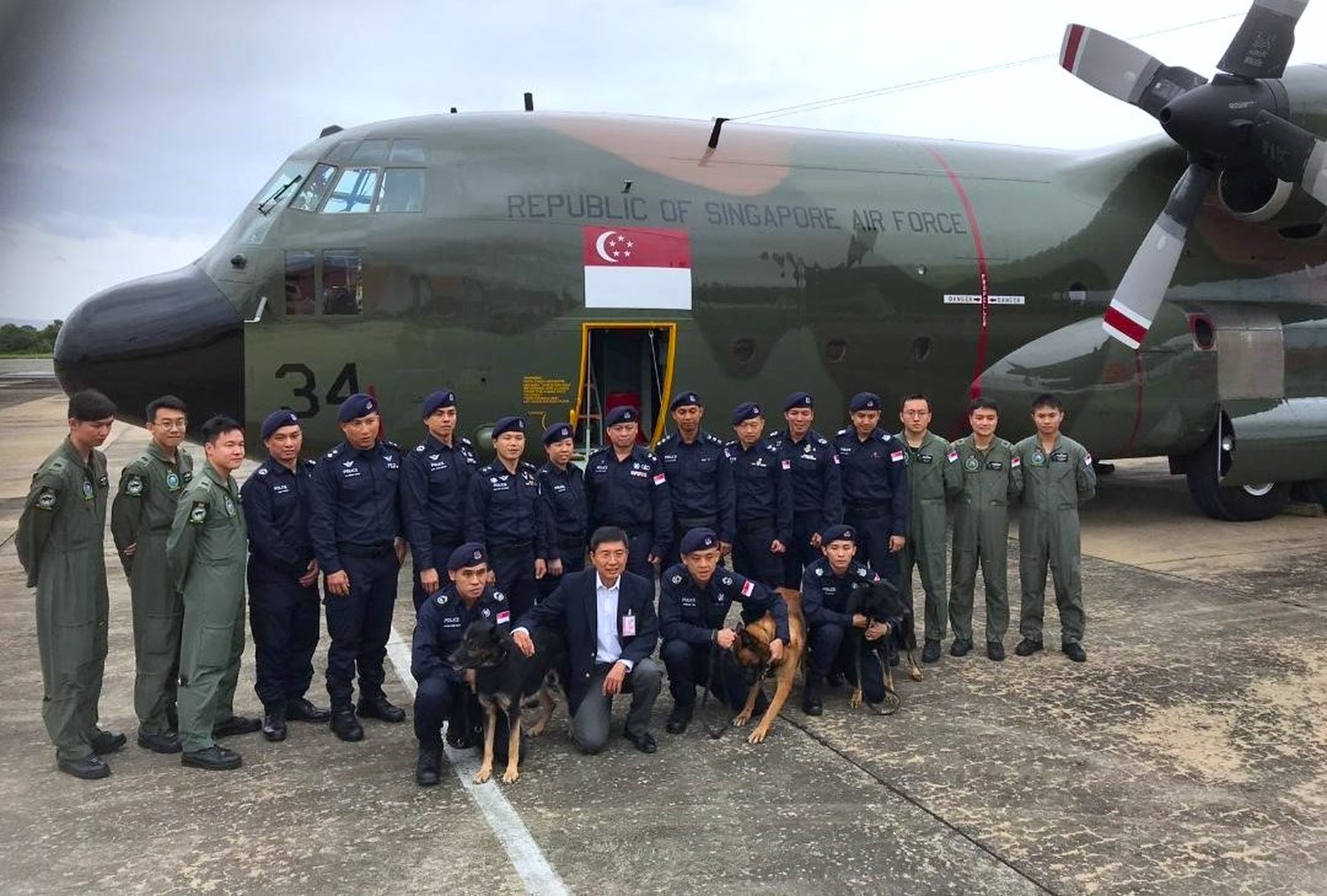
My most memorable UNPKF mission was to Laos, where I aided in disaster relief efforts following the 2018 Xe Pian-Xe Namnoy Dam collapse, when at least 31 people were killed and more than 7,000 became homeless.
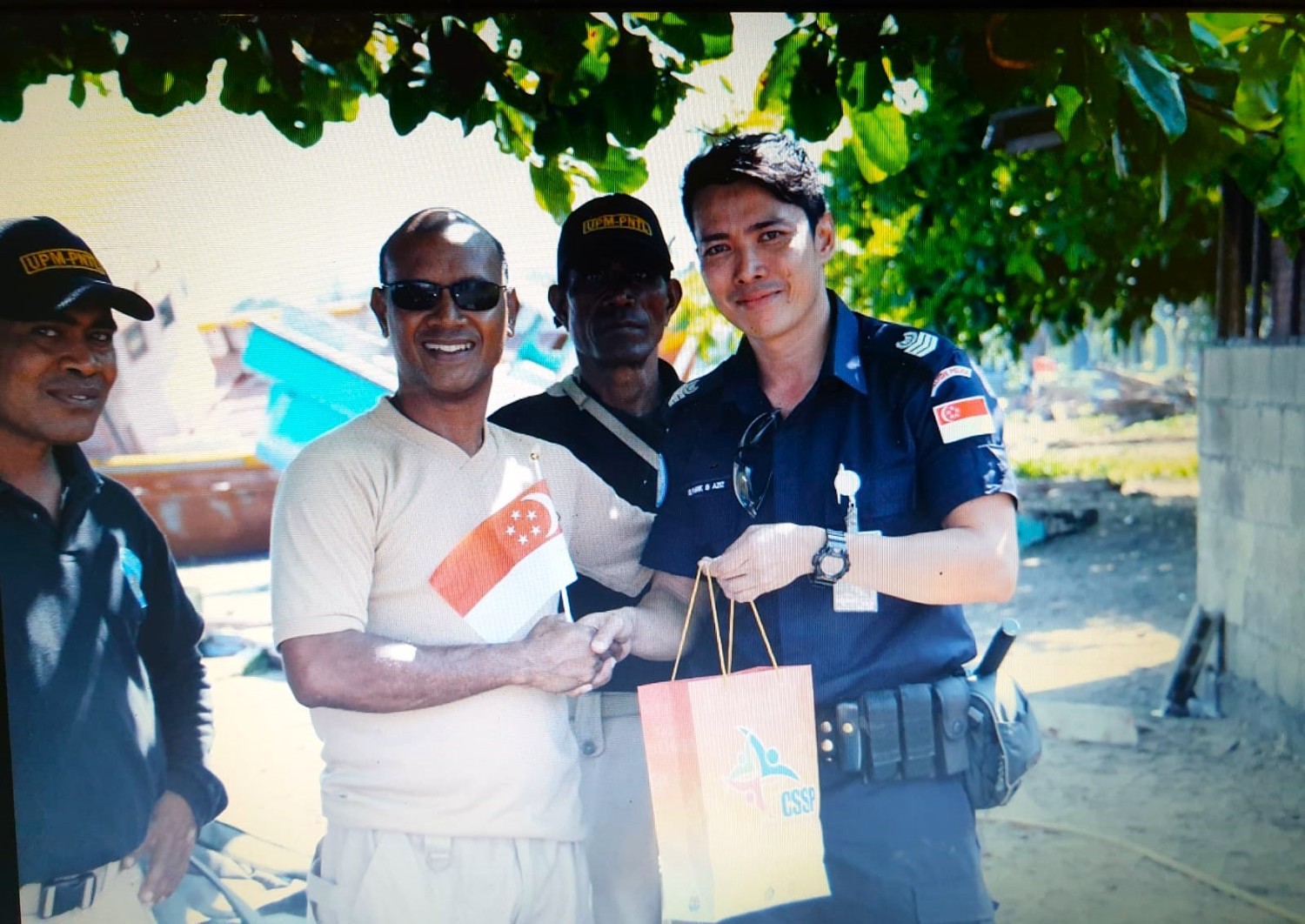
During this mission, I commemorated Hari Raya Haji with my fellow Police and Singapore Civil Defence Force officers, but video-called my family to stay connected. It was a unique experience, where I felt at home, even when I was away from home.
What’s your biggest takeaway from your UNPKF duties?
I learnt to appreciate everything that I often take for granted in Singapore. As a UNPKF officer, you can see the impact on people and communities due to civil unrest. To see countries where there’s no law and order; no safety when you walk at night; changes your perception. I’m thankful to the SPF for safeguarding what we have in Singapore.
Read on to find out about the Crisis Negotiation Unit, the Special Women Task Team, the K-9 Unit, and the STAR Unit of the SOC!


